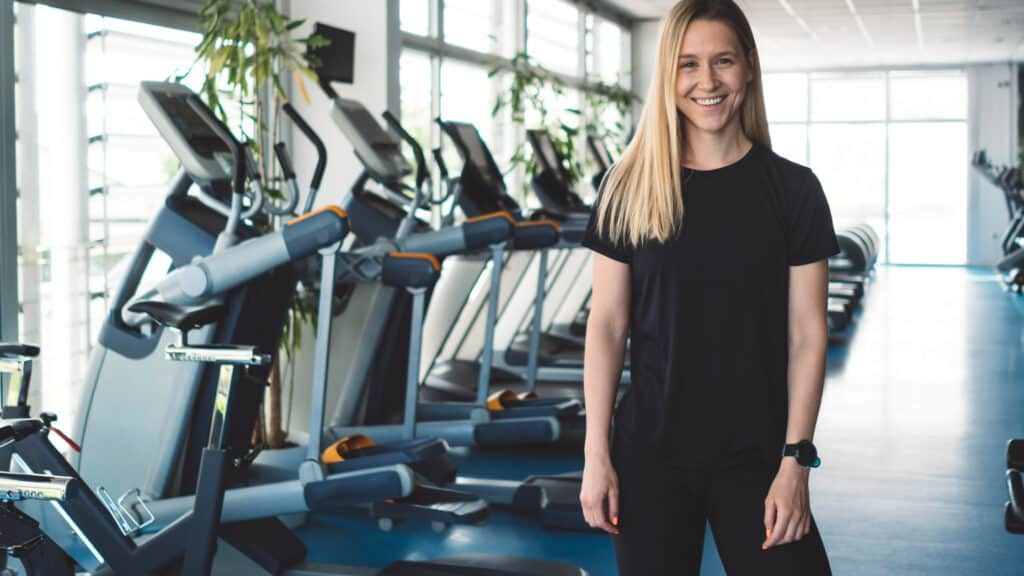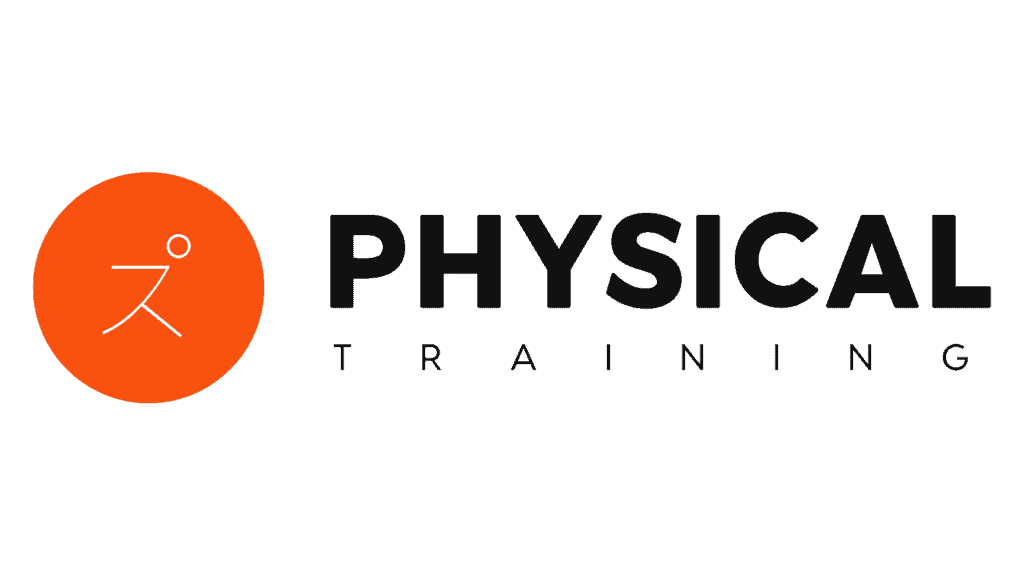
Introduction: Are you looking for a personal trainer but not sure what qualities you should be looking for? In this article, we’ll tell you the nine essential qualities that every personal trainer should have to ensure you get the most out of your fitness journey.
1. Education is Key for a personal trainer

It might seem obvious, but unfortunately, it isn’t.
There are so many social media fitness gurus out there who have never studied a thing about how the human body works.
Your trainer has to make crucial decisions that instantly affect your health. Exercising is a healthy habit, but if done wrong could also harm you.
Anyone can have you do a million squats and make you so sore you can barely walk, but what’s the point? There should be a method for when to push hard and when to pull back.
To do that, a Personal trainer has to be highly educated with a strong background in sports science.
Most trainers out there hold a Certificate in Fitness qualification. But is this enough? Sports science is based on exercise physiology, nutrition, anatomy, biomechanics, and so much more, which can’t be covered during a 6-month certificate.
In our opinion, a Bachelor’s degree is the minimum qualification you should look for when searching for your personal trainer. If he has a Master’s, even better.
After all, you want to be guided by someone who knows what he is doing and can always answer your fitness questions based on scientific evidence and not some bro-science gym secrets.
2. A personal trainer should Customize your Training Plans

The number one reason you should work with a personal trainer is that you want maximum results in the minimum time and under safety.
There is only one way to achieve that, and it’s called a personalized training plan.
It’s what all the elite athletes and movie stars out there do, from Michael Jordan to Christian Ronaldo and Scarlett Johansson to Chris Hemsworth. And there is a good reason for that.
Everybody is different and thus has different fitness needs.
You might be strong but lacking in aerobic capacity. You might have built muscle at the lower part of your body but not at the upper and opposite. Or you might have an injury that prevents you from executing certain types of exercises. Your sport might demand speed and power, so you want to become faster. Every person has their strengths and weaknesses and accordingly should plan their goals.
A good personal trainer should design from scratch a bespoke training plan for you and will adapt it to your needs as you progress in your fitness journey. That’s what you are paying them to do.
Otherwise, you would download a generic training plan or subscribe to a low-cost and cookie-cutter fitness app.
Unfortunately, many personal trainers do use generic workout plans and promote them as tailor-made. So how do you know your trainer isn’t just copying and pasting programs between clients? This guides us to the next sign of a good personal trainer.
3. your personal trainer should Use Fitness Assessments

How do you know your fitness needs? After all, what does it mean to be fit?
Physical fitness is not just one thing and is not only about being lean or ”shredded.”
It can be broken down into more specific components: endurance, strength, speed, power, agility, balance, flexibility, and body composition.
Someone’s performance at each one of these fitness components can be measured via specifically designed assessments.
In other words, a good coach will test your performance in different fitness abilities and then, based on your score, will know where your weaknesses are and your strengths. After that, they will be able to design a truly personalized training plan for you.
You should keep in mind that this procedure has to be repeated regularly – every 15 or 30 days, for example.
Your workout should always be a bit challenging to provoke fitness improvement. As you get fitter, you get used to the exercise stimulus, and your coach should reassess your fitness level to design more challenging workouts.
If you’d like to learn more about fitness assessment procedures, we recommend you have a look at this article: how to test your fitness level.
4. your personal trainer shouldn’t Recommending Supplements

Yeap. You might not expect to read this, and we might sound dogmatic, but it’s the hard truth.
Any trainer who recommends nutritional supplements to their clients has either a lack of knowledge or is unethical. In both cases, they are a trainer you should definitely avoid.
We know many trainers out there will get offended by these words, but this is a red flag. Unless they are qualified to do so, e.g., having additional nutritional studies, promoting supplements is like prescribing medicine without being a doctor.
When we say supplements, we mean every supplement, including the scoop of protein you take after an exhausting workout.
We have dedicated our lives to studying the human body, and our goal is to help people become healthier through movement.
So we know that to improve your performance in any physical ability, you don’t need any supplements but your motivation, consistency, and hard work.
There are no hacks or magic pills for getting leaner, stronger, faster, or healthier. Anyone who promotes them is doing it only because they are paid to do so.
Supplements are a multi-billion dollar business, and most of the hype and “benefits” of supplementation come from the mouth of the people who make and sell them.
Now you might ask, if it works, then what’s the problem?
In this article, our goal is to list the signs of a good personal trainer, and supplements are a massive topic on their own.
5. your personal trainer should Use an app

You have so many daily tasks to carry out, and you might not have time to go to the gym. Maybe you have to travel often for work.
Or just having to coordinate schedules with another person to work out sounds like an impossible task at the moment.
That’s why a good personal trainer should be able to train you from a distance.
And they should do that conveniently and effectively, not just texting you the workout of the day or mailing a hard-to-manage pdf.
If you want to see results, it is essential to interact with your trainer. They should be able to check in on your progress, assess your fitness status, address any questions you might have, and adapt the program to your needs. It’s a dynamic procedure based on communication.
Our advice is to find a personal trainer who uses his own online personal training app.
That way, you’ll know your trainer will have you covered no matter what, providing you with high-quality services even if you don’t want to meet in person. It’s also a sign of professionalism and a way to know he is serious about his work.
6. your personal trainer should Lead by example

If a father tried to convince his children to stop eating so much sugar with a bar of chocolate in his hand, how effective do you think he would be?
It’s evident that a personal trainer should follow their own advice to be taken seriously.
We are not saying they have to be perfect, but walking the walk and practicing what they preach is important.
You will be far more inspired and motivated by a trainer who does live a healthy lifestyle.
7. shouldn’t GIVE medical advice.

It’s not a personal trainer’s job to provide medical advice to their clients, and actually, it’s illegal (unless they have also studied medicine).
Unfortunately, some trainers try to diagnose health-related conditions and recommend treatment for such situations.
They might advise a massage for your back pain, a heat lotion for your ankle sprain, or taking anti-inflammatory pills for your shoulder pain. It may sound harmless, but it isn’t.
Your trainer should know the barriers to his knowledge, and if you have a condition, they should refer you to an expert. It’s that simple.
8. should be HONEST

A personal trainer should always be honest with you.
You might want to lose all that belly fat in one week or become a muscle beast in a month. Well, guess what. It can’t be done.
Your trainer should help you set realistic goals based on your fitness level.
9. should be PASSIONATE

To be successful in any field, you must be passionate, and the fitness industry is no exception.
A personal trainer must have a passion for fitness, a passion for educating others and helping them achieve their fitness goals.
But this is an important distinction – a passion for working out and a passion for coaching people aren’t necessarily the same thing. Your trainer should possess both.
You don’t want to be trained by someone who only cares about himself being fit and lean.
Your trainer should be passionate about making you healthier and stronger. You are together in this, so your goals should be their top priority.
What personal qualities do you think a good personal trainer should have? Let us know in the comments below!
And if you want a tailor-made fitness plan that will save you time and get you in shape faster, let us know, and we’ll get it done.
We know it’s hard to get in shape when you have a busy life. At Physical, we design a plan that works around your schedule so you can stay healthy and get your dream body faster.
Click the Subscribe Button below and meet your coach.

FAQs:
Q: What is the minimum educational qualification for a personal trainer?
A: In our opinion, a Bachelor’s degree is the minimum qualification you should look for when searching for your personal trainer. If he has a Master’s, even better.
Q: Should a personal trainer recommend supplements?
A: No, any trainer who recommends nutritional supplements to their clients has either a lack of knowledge or is unethical.
Q: How often should fitness assessments be conducted?
A: Fitness assessments should be conducted every 15 or 30 days to ensure that your workout plan is always challenging and provokes fitness improvement.
Q: Why is a customized training plan essential?
A: A customized training plan is essential because everybody is different and thus has different fitness needs. A good personal trainer should design a plan tailored to your needs and adapt it as you progress in your fitness journey.
